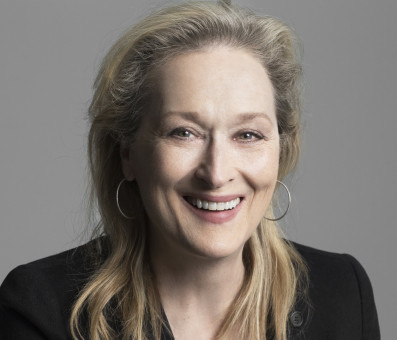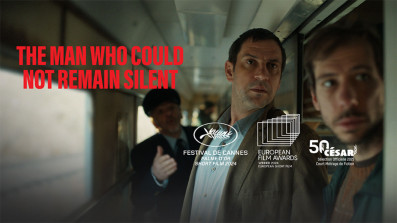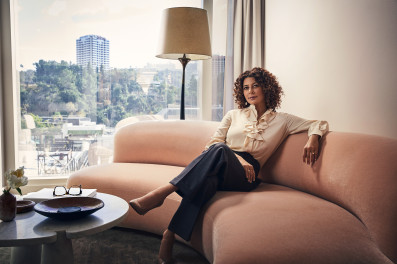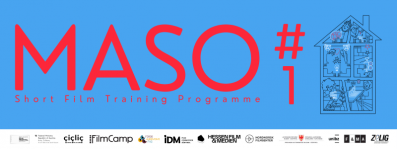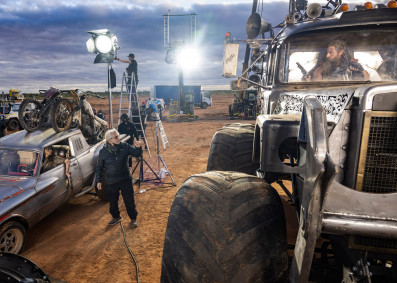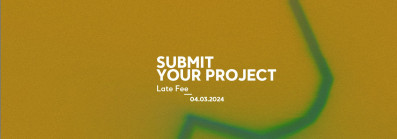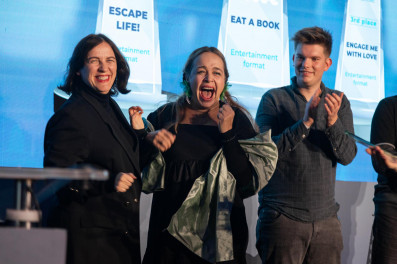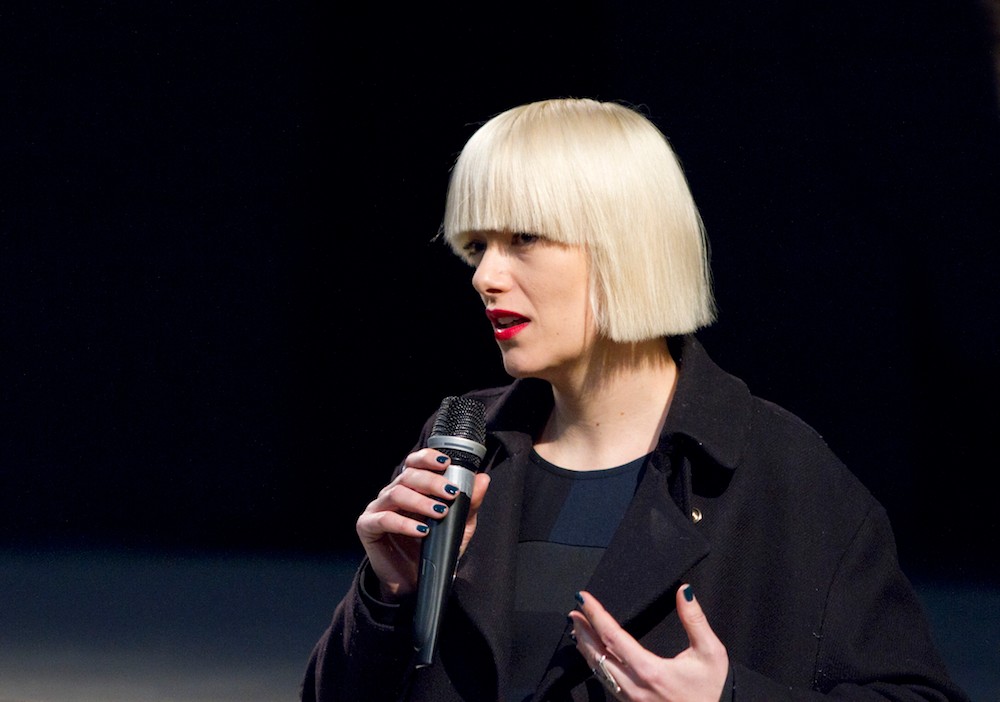
Interview with Marta Popivoda, the director of Landscapes of Resistance
Today it is equally subversive to make a queer or partisan film
Marta Popivoda is a director, video artist and cultural worker. Through his work, he explores the tensions between memory and history, as well as ideology and everyday life, with an emphasis on the anti-fascist and feminist potentials of the Yugoslav socialist project. Popivoda's first feature-length documentary, Yugoslavia, as Ideology Moved Our Collective Body, premiered at the 63rd Berlinale, and was later screened at many international film festivals. The film is part of the MoMA New York Museum’s collection.
In early February, Popivoda’s film Landscapes of Resistance premiered at the 50th Rotterdam International Film Festival as the only documentary in the main competition program, Tiger Competition.
"The film Landscapes of Resistance captures the journey through the memories of anti-fascist fighter Sonja (97), one of the first partisans in Serbia, who was also among the leaders of the resistance movement in Auschwitz. While Sonja talks, we travel through landscapes of her revolutionary youth - forests and mountains of Serbia and mud Auschwitz, recorded as they look today - as well as through her small apartment in the centre of Belgrade, where she lives with her husband and cat. As a great storyteller, Sonja is able to talk about events from the past without "mindset", which directly conveys us "into that specific atmosphere and way of thinking that gave rise to the anti-fascist resistance in Yugoslavia. We let her story travel through time, towards the bodies of new generations, suggesting that it is always possible to think and resist," states Film Center Serbia.
How did Ana Vujanović and you come up with the idea to make a partisan film?
The idea for the film came more than ten years ago when I met Sonja Vujanović who is Ana's grandmother's aunt and when I heard her story. Sonja as she talks creates images in our head and it reminded me of reading a movie script. I wanted to note her exceptional story, but also the way she told it because Sonja is a great narrator.
Why is the culture of the National Liberation War extreme in our mainstream? This is only the second partisan film in the 21st century, after Dejan Babosek and the film Breakthrough.
There is a decades-long taboo on socialist ideas and the National Liberation War. The historical marginalization of that period and revisionism are very present. We wanted to think together with Sonja what it meant to be a partisan then, and what it means today. The basic idea of the film is to evoke the feeling and thought that resistance is always possible; both today and then, in a much more radical situation of war and captivity.
In both the First and the Second World War, Serbia was on the right side. And not through his state policy, but through the revolt of the people and partisans. This primarily refers to the Second World War, when the revolt of the people and partisans offered resistance to the occupation of Nazi Germany. That is something we really should always be proud of. I don't know where the identification with the right-wing forces and the right-wing populist agendas comes from now, with disrespect for its history and the significance it had in Europe, but all over the world.
When we talk about resistance then, and resistance today, how do they differ?
The world has changed drastically, and so have the forms of fascism. Then the enemy-occupied our country and at first, it was physically clear who the enemy was. However, the enemy of the decision to resist Nazism and occupation also existed among his fellow citizens. In Yugoslavia, according to certain data, more people died in the civil war between the Chetniks and the Partisans than by the Germans, but it seems to me that things were clearer, or at least seem clearer from this time perspective. Today, the situation is more complex, because the enemy is seemingly hidden. That is why it is important to educate ourselves politically, in order to recognize the new fascisms that are currently active, as well as those that come from the future.
By no means do we want to compare our experience and struggle with Sonja's in the film. We do not want to compare ourselves with her, who was an anti-fascist fighter, a partisan and ended up in Auschwitz as a political prisoner. What Sonja constantly emphasizes in her stories is solidarity, care, self-organization of her friends, and most of all her friends; how they took care of each other and encouraged each other, all with the goal of surviving that horror but also of resisting. The fact that resistance was possible in Auschwitz, which we perceive as a totalitarian space where nothing was possible, is very inspiring to me and should be something we must hear and from which we can conclude that a fight is possible in this space and time.
Throughout your work, you deal a lot with the culture of memory. Is the torture of memories and the culture of forgetting and denial in force in our country?
The degradation of the dignity of almost every human being in our society, which is now a cruel neoliberal capitalist society, which erases the idea of social justice and which shakes the dignity of both those who teach us history and those who sell us bread, leads to complete degradation of society. You don't believe in history, you don't believe in memories. We easily become victims of media spins that are extremely arbitrary, that is, in the service of the current interests of those in power. There is a culture of sensation and tabloids in the media and no importance is given to serious investigative journalism, and that has to do with institutions in society and the value system that is being propagated. It is not the goal of our countries to have citizens who know something and think for themselves.
How to present the struggle for a better and more solidary world to the younger generations who do not want to identify with the National Liberation War, which is foreign and distant to them?
I think it is a question of understanding the values and principles of the system in which we live. The most important part of the film for me is how Sonja became a partisan and a communist, and how she perceived the society of that time and why she became politicized and engaged. We now live in a society of inequality, in a class-divided society, we are unequal and do not have the same access to certain resources in society, even the basic ones such as health care, education, etc., and that was quite different in socialism. How to talk about anti-fascism today? First of all, the most important thing is to educate ourselves politically in order to recognize new fascisms. And it is also important how we treat each other, how we treat refugees, how we understand their situation, but also the conditions of our own lives. Because it seems to me that young people today do not seem to understand that they have some rights, or at least that they should have them in this society and that it is worth fighting for them. It is important to talk about equality, solidarity and care, as opposed to the capitalist principles of competence and individualism.
Sonja's story is precious because it tells an anti-heroic story because it shows us that it is not necessary to be a great hero in order to offer resistance. She is an exceptional person and a heroine, but she never misses an opportunity to say that everything that happened to her and what she did, she did not do alone. She was part of a collective, self-organization and resistance that was not only hers.
Source: Vanja Šunjić/ BUKA



